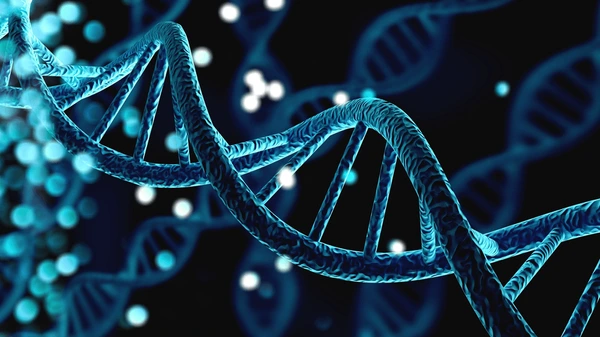
Credits: ShutterStock
In recent years, like many other countries, Canada has experienced the swift expansion of DNA databases. Voluntarily provided or collected through forensic methods, this genetic information fills these repositories and serves a crucial role in crime-solving. Nevertheless, as DNA database proliferation continues unabated; it poses crucial legal inquiries pertaining to privacy—civil liberties—and maintains an intricate equilibrium between dispensing justice and safeguarding individual rights.
As technological advancements refine forensic techniques, the reliance on DNA in criminal investigations–unparalleled for its accuracy in identifying individuals–continues to increase: indeed, it has become a cornerstone. The potential to connect a suspect with either the crime scene or victim through genetic material proves invaluable; this results not only in convictions but also exonerations.
Privacy concerns lie at the heart of the DNA database issue: individuals who willingly contribute their genetic material to commercial or law enforcement repositories might not fully comprehend how extensively this information could be utilized. This underscores the importance of informed consent–it prompts queries about transparency, specifically in terms of educating individuals on potential outcomes tied to sharing their unique, personal genomic data. There are other purposes also, like there are test for genetic deficiencies.
Canada has enacted laws in acknowledgment of mounting concerns about genetic privacy, specifically to regulate DNA database usage. The objective of these regulations: strike a delicate balance between employing DNA evidence for criminal investigations – an imperative task – and ensuring robust individual privacy safeguards; however, given the continuously evolving nature of technology and genetic research, it is necessary that we consistently revaluate this legal framework—this becomes crucial to guarantee its resilience in protecting citizens’ rights.
Distinguishing between forensic DNA databases, maintained by law enforcement agencies; and direct-to-consumer (DTC) DNA testing services is crucial. The former focuses on crime solving–a stark contrast to the latter which primarily collects genetic data for ancestry and health-related purposes. However, challenges emerge when investigative access extends from law enforcement’s own database into those of DTC providers: this blurs distinctly drawn lines between private usage versus public application of our personal genomic information.
DNA databases offer a significant advantage: their potential to re-examine cold cases. These reservoirs of genetic evidence often lead to breakthroughs, ultimately bringing closure – not only for victims but also their families. In this way; they play an instrumental role in exonerating individuals who have been wrongfully convicted, underscoring with great force the necessity for an ethical and meticulous approach towards genetic information management.
Advocating for accountability and transparency in DNA database use, a criminal lawyer crucially navigates the legal landscape to ensure adherence of genetic information collection, storage, and utilization to established laws; as technology evolves—a task demanding steadfast vigilance—they safeguard their clients’ rights—particularly when cases hinge upon central DNA evidence.
Lawyers pivotally challenge any discriminatory practices and advocate for fair, just treatment in the context of DNA evidence. The ethical considerations of using DNA databases extend to law enforcement practices: potential misuse of genetic information; racial profiling–which may disproportionately affect marginalized communities, becomes a pressing issue.
The global nature of crime necessitates international cooperation for the effective use of DNA databases. Genetic evidence crossing borders can often lead lawyers to navigate complex legal frameworks. Therefore, it becomes paramount to establish guidelines and agreements that respect individual rights while sharing genetic information in order to ensure a harmonized approach to justice.
Canada’s DNA databases: they harness the power of genetic evidence for justice, yet meticulously protect individual privacy–a delicate balance with profound legal implications. Crucial advocates in this complex equation are lawyers; as stewards of our legal system–they champion rights–particularly those whose criminal investigations make their very own genetic information a focal point. In tandem with technological advancement, evolution is imperative within our legal frameworks—to address ethics surrounding these DNA repositories—thus guaranteeing that societal fairness and equity consistently underpin any quest for judicial reparation.
Copyright © 2024 California Business Journal. All Rights Reserved.
In a world where cyber threats are evolving at breakneck speed, the need for robust…
It was a dreary Saturday afternoon. Rain drummed against the window, a steady, monotonous rhythm…
The best live casinos are a really fun place to be. You can watch streams…
Tips for recording Amazon Prime Video shows Recording your favorite Amazon Prime Video shows can…
In this article, we further explore the legal issues associated with kratom – an herbal…
The safety of financial transactions is essential in the current digital era. Financial organizations must…